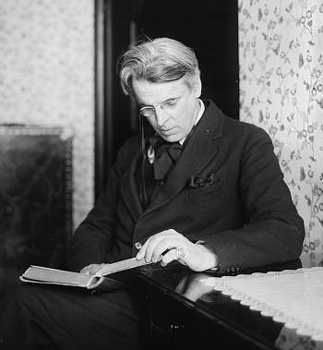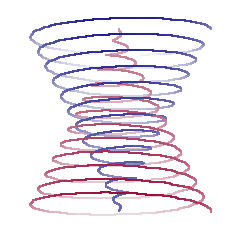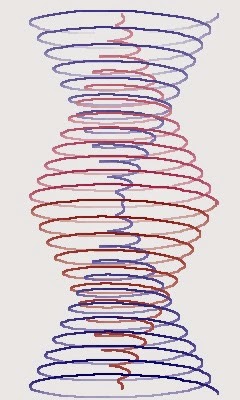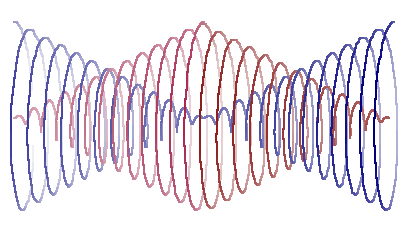|
|
Online Poems |
|
|
William Butler Yeats The Second Coming (1920) |
|
The Second Coming
Turning and turning in the widening gyre
The falcon cannot hear the falconer;
Things fall apart; the centre cannot hold;
Mere anarchy is loosed upon the world,
4
The blood-dimmed tide is loosed, and everywhere
The ceremony of innocence is drowned;
The best lack all conviction, while the worst
Are full of passionate intensity.
8
Surely some revelation is at hand;
Surely the Second Coming is at hand.
The Second Coming! Hardly are those words out
When a vast image out of Spiritus Mundi
[spirit of the world (Latin)] 12
Troubles my sight: somewhere in sands of the desert
A shape with lion body and the head of a man,
A gaze blank and pitiless as the sun,
Is moving its slow thighs, while all about it
16
Reel shadows of the indignant desert birds.
The darkness drops again; but now I know
That twenty centuries of stony sleep
Were vexed to nightmare by a rocking cradle,
20
And what rough beast, its hour come round at last,
Slouches towards Bethlehem to be born?
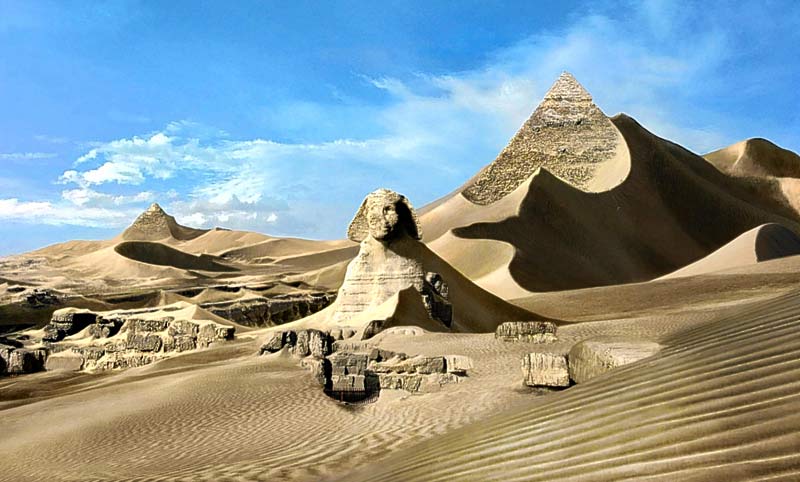
Possible discussion questions:
1. Identify elements of Christian millennialism in the poem but also non-Christian elements.
2. Yeats, an Irish nationalist of Anglo-Irish descent, wrote and published this poem in 1920, during the Irish Revolutionary Period that partly resolved the nation's longstanding colonial status with England by establishing the Irish Free State in 1921. How does millennialism conform to or support the political narratives of colonialism and postcolonialism in Ireland or other parts of the world?
|
Complicating the normal association of millennialism with linear narratives and evolution with spirals, Yeats concocted a historical scheme involving inter-connecting gyres or spirals. See for instance William Butler Yeats: Gyres and Sacred Geometry. |
|
3. What is the tone of this poem and, by extension, of revolutionary postcolonial change? Modernist poets like Yeats are now often seen as being as conservative or reactionary as they were revolutionary. What ambivalences does the poem express?
4. It's a wonderful "factoid" that Chinua Achebe drew the title for his great novel Things Fall Apart from this poem's third line, but what meanings does that fact imply regarding postcolonial literature?
Other representations / conceptions of Yeats's gyres
|
|
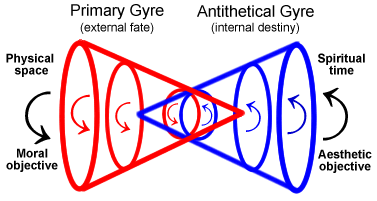 |
|
Other poems by Yeats:
William Butler Yeats, Reconciliation (1910)
William Butler Yeats, The Great Day (1938)
W. B. Yeats, When You Are Old (1891)

